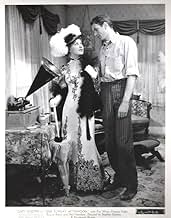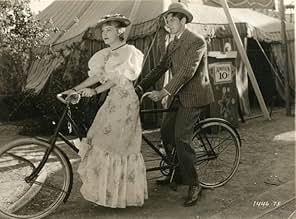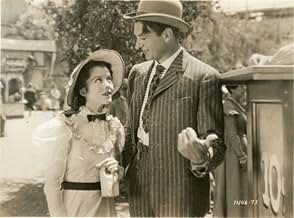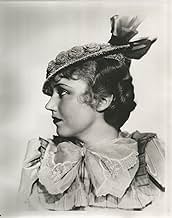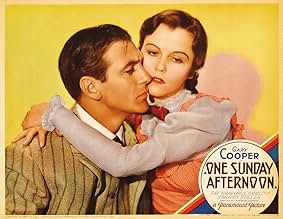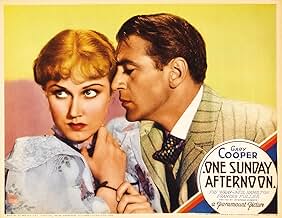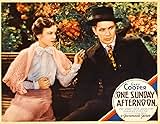Agrega una trama en tu idiomaMiddle-aged dentist Biff Grimes reminisces about his unrequited love for beautiful Virginia Brush and her husband Hugo, his ex-friend, who betrayed him.Middle-aged dentist Biff Grimes reminisces about his unrequited love for beautiful Virginia Brush and her husband Hugo, his ex-friend, who betrayed him.Middle-aged dentist Biff Grimes reminisces about his unrequited love for beautiful Virginia Brush and her husband Hugo, his ex-friend, who betrayed him.
- Dirección
- Guionistas
- Elenco
Clara Blandick
- Mrs. Brush
- (escenas eliminadas)
Bobby Barber
- Man in Greased Pig Contest
- (sin créditos)
James Bradbury Jr.
- Dink's Chum
- (sin créditos)
Ed Brady
- Pig Contest Emcee
- (sin créditos)
James P. Burtis
- Dink Hoops
- (sin créditos)
A.S. 'Pop' Byron
- O'Reilly - Phoenix Foreman
- (sin créditos)
Jack Rube Clifford
- Mr. Johnson - Watchman
- (sin créditos)
Robert Homans
- Officer Charlie Brown
- (sin créditos)
Carmencita Johnson
- Priscilla
- (sin créditos)
Gus Leonard
- Musician
- (sin créditos)
Jim Mason
- Dink's Chum
- (sin créditos)
Russ Powell
- Tuba Player
- (sin créditos)
- Dirección
- Guionistas
- Todo el elenco y el equipo
- Producción, taquilla y más en IMDbPro
Opiniones destacadas
Gary Cooper plays a dentist named Biff whose former friend Hugo (Neil Hamilton) stabbed him in the back many times when they were younger and even wound up with the woman Biff loved, played by Fay Wray. Now Hugo has come to Biff to have a tooth pulled. While Hugo is sedated, Biff flashes back to how things went down between the two men. Good movie but later remake called The Strawberry Blonde is better. That one stars James Cagney, Olivia de Havilland, and Rita Hayworth. It's lighter and funnier than this one, which is dark in parts. Cooper's great here and his support is fine but I'm not sure Fay Wray was quite right for her part. This is yet another movie from the early '30s where Neil Hamilton played a man that women go crazy over. Something must have been in the water back then because I just don't see any woman preferring him to Gary Cooper. I remember another movie where he was picked over Clark Gable. Insane!
The exposition that takes place in a dentist's office, before the flashback that constitutes the major part of this film, seemed rather long to me. And the main character, Biff Grimes (Gary Cooper), seemed to be the least likable. So, I thought this film was going to be a drag.
But as the story develops, one learns that Biff, though a dense, insensitive lout, has an interesting story to tell. And the first part of the film is necessary to fully appreciate what follows.
I have always felt that Gary Cooper is best suited for characters that are socially awkward. Biff is just such a role. Cooper is surrounded by actors who outshine him at times. But they form a solid ensemble for this adapted play (that would be remade two more times in the forties). Fay Wray, in particular, amazes with her transformations throughout the film.
This plot is a simple story about revenge that no doubt pleased audiences of the depression era who looked to champion the common man.
But as the story develops, one learns that Biff, though a dense, insensitive lout, has an interesting story to tell. And the first part of the film is necessary to fully appreciate what follows.
I have always felt that Gary Cooper is best suited for characters that are socially awkward. Biff is just such a role. Cooper is surrounded by actors who outshine him at times. But they form a solid ensemble for this adapted play (that would be remade two more times in the forties). Fay Wray, in particular, amazes with her transformations throughout the film.
This plot is a simple story about revenge that no doubt pleased audiences of the depression era who looked to champion the common man.
I was pleasantly surprised that this film was aired on Turner Classic Movies. In The Films of Gary Cooper when Warner Brothers purchased the rights from Paramount for James Cagney's remake of One Sunday Afternoon entitled The Strawberry Blonde, it says that the Paramount film itself was purchased and buried. The author said that the original might not see the light of day again. It was interesting to see this version and compare it with Cagney's.
This is a much darker version and probably a lot closer to what you saw on Broadway. One Sunday Afternoon closed that year of 1933 after running for 332 performances, very nice indeed for the Depression era audience and pocketbook. Lloyd Nolan originated the role on stage and I'm sure it must have been closer to Cagney's interpretation.
I can see Lloyd Nolan playing this part a lot easier than Gary Cooper. For one thing, Cooper just was not an urban type. In fact two of his most successful roles in Frank Capra's Mr. Deeds Goes to Town and Meet John Doe he was the country boy out of his environment in the big city. But Lloyd Nolan was not a movie name, in fact he'd make his screen debut shortly.
The story structure is still the same, Gary Cooper while about to pull a tooth of his rival Neil Hamilton thinks back to the old days with Hamilton when they were both courting Fay Wray. Fay had a girl friend played by Frances Fuller who was all aglow over Cooper, but he couldn't see her at all. When Hamilton and Wray elope Cooper literally settles for second best and marries Fuller.
The Strawberry Blonde was done with so much lighter a touch. Here the Hamilton character is far more directly responsible for Cooper landing in prison. He's a much nastier guy, much nastier than lovable blowhard Jack Carson was. In fact Hamilton commits outright perjury to land Cooper in jail where he finishes his correspondence course to become a dentist.
In fact Jack Carson played the same part again in yet another version that reverted back to the same title and starred Dennis Morgan in the Cooper/Cagney lead. That one was done as a musical and didn't get nearly the acclaim that the other two did.
There's not much to choose from with Frances Fuller and Olivia deHavilland. Both are the good girls of the plot and those were the kind of parts deHavilland was looking to ditch. But whereas Rita Hayworth turns out to be a shrew, Fay Wray is a tramp. Remember this was before the Code.
In this case the remake was better. The story required a much lighter touch than Paramount gave it. Still a miscast Gary Cooper gives it his best shot and One Sunday Afternoon is still entertaining.
But if you view this side by side with The Strawberry Blonde, I'm betting you'll what Warner Brothers did so much better.
This is a much darker version and probably a lot closer to what you saw on Broadway. One Sunday Afternoon closed that year of 1933 after running for 332 performances, very nice indeed for the Depression era audience and pocketbook. Lloyd Nolan originated the role on stage and I'm sure it must have been closer to Cagney's interpretation.
I can see Lloyd Nolan playing this part a lot easier than Gary Cooper. For one thing, Cooper just was not an urban type. In fact two of his most successful roles in Frank Capra's Mr. Deeds Goes to Town and Meet John Doe he was the country boy out of his environment in the big city. But Lloyd Nolan was not a movie name, in fact he'd make his screen debut shortly.
The story structure is still the same, Gary Cooper while about to pull a tooth of his rival Neil Hamilton thinks back to the old days with Hamilton when they were both courting Fay Wray. Fay had a girl friend played by Frances Fuller who was all aglow over Cooper, but he couldn't see her at all. When Hamilton and Wray elope Cooper literally settles for second best and marries Fuller.
The Strawberry Blonde was done with so much lighter a touch. Here the Hamilton character is far more directly responsible for Cooper landing in prison. He's a much nastier guy, much nastier than lovable blowhard Jack Carson was. In fact Hamilton commits outright perjury to land Cooper in jail where he finishes his correspondence course to become a dentist.
In fact Jack Carson played the same part again in yet another version that reverted back to the same title and starred Dennis Morgan in the Cooper/Cagney lead. That one was done as a musical and didn't get nearly the acclaim that the other two did.
There's not much to choose from with Frances Fuller and Olivia deHavilland. Both are the good girls of the plot and those were the kind of parts deHavilland was looking to ditch. But whereas Rita Hayworth turns out to be a shrew, Fay Wray is a tramp. Remember this was before the Code.
In this case the remake was better. The story required a much lighter touch than Paramount gave it. Still a miscast Gary Cooper gives it his best shot and One Sunday Afternoon is still entertaining.
But if you view this side by side with The Strawberry Blonde, I'm betting you'll what Warner Brothers did so much better.
I am a huge fan of Fay Wray. For those of you who think of her only in terms of her performance in "King Kong" (and if you are reading this, you probably don't), you are truly missing out. Try to catch anything she's in! She's great in "One Sunday Afternoon"; gorgeous as usual.
The real star of this movie, however, is Frances Fuller. She is an absolute delight. A beautiful, tremendously talented actress who shines throughout. She plays a very tough role - the kind of sappy woman that may drive today's moviegoers crazy. But she pulls it off with charm, grace and pride. This is a must see.
Didn't know anything about Frances before watching this movie. Not surprised one bit to see that she had a successful Broadway career as well as a successful life off stage.
The real star of this movie, however, is Frances Fuller. She is an absolute delight. A beautiful, tremendously talented actress who shines throughout. She plays a very tough role - the kind of sappy woman that may drive today's moviegoers crazy. But she pulls it off with charm, grace and pride. This is a must see.
Didn't know anything about Frances before watching this movie. Not surprised one bit to see that she had a successful Broadway career as well as a successful life off stage.
One Sunday Afternoon is an example of what movie studios used to do with total professionalism - in the space of a few months, use a Broadway play as the template to make a movie. One Sunday Afternoon opened on Broadway on February 15, 1933; the movie went into production at Paramount in May 1933 and was released on September 1, 1933, while the original play was still at the Little Theater. Grand Hotel is another example of a Broadway play becoming a movie in a relatively short time.
Warner Bros. turned the play Arsenic and Old Lace into a movie after the play was a hit on Broadway, but by then, the play's producer knew the score. One Sunday Afternoon closed on Broadway in November 1933, a closure that probably was sped up by competition from the movie. As a condition of the sale of movie rights, the movie Arsenic and Old Lace, made in 1941, could not be released until the play it was based on closed on Broadway. That was in 1944.
Back to One Sunday Afternoon, the movie. As with many movies made during the Depression, this movie has a grim edge to it. Although things work out, all the leads have rough times of it. Fay Wray is cast against her usual role, playing a mean person. Gary Cooper is no hero, just a guy who gets jammed by people he trusted. Frances Fuller (Amy Lind) does not change much during the movie, she always believes in Biff Grimes (Cooper). She made one more movie in Hollywood as a lead character before vanishing until some television roles over 15 years later, so she did not have a chance to be typecast.
The end result of Paramount's production is a movie that shows what a struggle life is, and how people can change along the way. Instead of cheerful memories of a time gone by, which the title implies, you have scenes such as Gary Cooper returning from prison to meet Amy in Avery's Park, an amusement park that closed and fell into disrepair while Cooper was in prison.
One Sunday Afternoon is a slice of real life, a movie that deals with hard times for some ordinary (but very good looking) people.
Warner Bros. turned the play Arsenic and Old Lace into a movie after the play was a hit on Broadway, but by then, the play's producer knew the score. One Sunday Afternoon closed on Broadway in November 1933, a closure that probably was sped up by competition from the movie. As a condition of the sale of movie rights, the movie Arsenic and Old Lace, made in 1941, could not be released until the play it was based on closed on Broadway. That was in 1944.
Back to One Sunday Afternoon, the movie. As with many movies made during the Depression, this movie has a grim edge to it. Although things work out, all the leads have rough times of it. Fay Wray is cast against her usual role, playing a mean person. Gary Cooper is no hero, just a guy who gets jammed by people he trusted. Frances Fuller (Amy Lind) does not change much during the movie, she always believes in Biff Grimes (Cooper). She made one more movie in Hollywood as a lead character before vanishing until some television roles over 15 years later, so she did not have a chance to be typecast.
The end result of Paramount's production is a movie that shows what a struggle life is, and how people can change along the way. Instead of cheerful memories of a time gone by, which the title implies, you have scenes such as Gary Cooper returning from prison to meet Amy in Avery's Park, an amusement park that closed and fell into disrepair while Cooper was in prison.
One Sunday Afternoon is a slice of real life, a movie that deals with hard times for some ordinary (but very good looking) people.
¿Sabías que…?
- TriviaWhen Biff asks for a package of Sen-Sen at the pool hall, audiences at the time would have known he was buying a popular brand of breath freshener. It was produced from the late 1800s until 2013.
- ErroresTodas las entradas contienen spoilers
- Citas
Virginia 'Virgie' Brush Barnstead: How'd you know my name's Virginia?
Dr. Lucius Griffith 'Biff' Grimes: That's for me to know and you to find out.
- ConexionesVersion of ¡Ay qué rubia! (1941)
- Bandas sonorasOn a Sunday Afternoon
(1902) (uncredited)
Music by Harry von Tilzer
Lyrics by Andrew B. Sterling
Played during the opening credits and at the end
Selecciones populares
Inicia sesión para calificar y agrega a la lista de videos para obtener recomendaciones personalizadas
Detalles
- Fecha de lanzamiento
- País de origen
- Idioma
- También se conoce como
- Dr. Grimes hämnd
- Locaciones de filmación
- Productora
- Ver más créditos de la compañía en IMDbPro
- Tiempo de ejecución
- 1h 25min(85 min)
- Color
- Relación de aspecto
- 1.37 : 1
Contribuir a esta página
Sugiere una edición o agrega el contenido que falta


